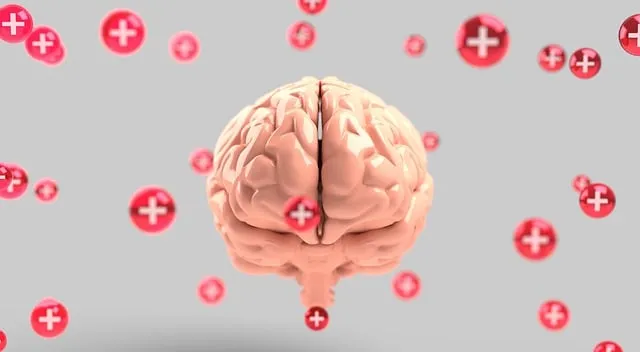The Lone Tree Kaiser Permanente mental health appointment centers prioritize mental wellness through innovative self-assessment tools. These tools empower individuals to understand their psychological state, enabling early detection of mental health issues and targeted interventions. By combining user-friendly interfaces with evidence-based assessment methods, these tools offer accurate insights into emotional well-being, stress levels, and resilience, enhancing communication with mental health professionals. Integrating strategies like burnout prevention, cultural sensitivity, and empathy building ensures personalized care tailored to diverse needs, including healthcare providers facing burnout. This holistic approach has revolutionized patient care, leading to improved symptoms and well-being, and strengthened relationships between patients and providers at Lone Tree Kaiser Permanente mental health appointment centers.
Mental wellness self-assessment tools play a pivotal role in enhancing the effectiveness of mental health care. With an increasing emphasis on patient-centered approaches, these tools empower individuals to actively participate in their well-being management. This article explores the development of such tools, focusing on the Lone Tree Kaiser Permanente Mental Health Appointment Center as a case study. We delve into understanding the need, designing effective assessments, incorporating best practices, and evaluating their impact, offering valuable insights for healthcare providers.
- Understanding the Need for Self-Assessment Tools in Mental Health Care
- Designing Effective Mental Wellness Self-Assessment Tools
- Incorporating Best Practices and Evidence-Based Methods
- Implementing and Evaluating the Impact at Lone Tree Kaiser Permanente Mental Health Appointment Center
Understanding the Need for Self-Assessment Tools in Mental Health Care

In today’s fast-paced world, mental wellness is a growing concern for many individuals seeking support at Lone Tree Kaiser Permanente mental health appointment centers. Self-assessment tools play a pivotal role in addressing this need by offering accessible and private means to gauge one’s psychological state. These tools empower people to take an active role in their mental healthcare journey, enabling them to recognize potential issues early on and seek appropriate interventions.
By utilizing self-assessment methods, individuals can gain valuable insights into their emotional well-being, stress levels, and overall mental resilience. Moreover, these assessments facilitate better communication between patients and mental health professionals, as they provide a foundation for more targeted and personalized treatment plans. Incorporating strategies like burnout prevention, cultural sensitivity in mental healthcare practice, and empathy building can further enhance the effectiveness of self-assessment tools, ensuring that care is tailored to meet diverse individual needs.
Designing Effective Mental Wellness Self-Assessment Tools

Designing effective mental wellness self-assessment tools requires a multifaceted approach to cater to diverse individual needs. These tools play a pivotal role in early detection and intervention, enabling professionals like those at Lone Tree Kaiser Permanente Mental Health Appointment Center to offer tailored support. Incorporating user-friendly interfaces and evidence-based assessment methods ensures accuracy and reliability. Features such as self-reporting questionnaires, interactive simulations, and personalized feedback mechanisms can enhance engagement while providing valuable insights into an individual’s mental health status.
For optimal effectiveness, self-assessment tools should integrate conflict resolution techniques and confidence-boosting exercises alongside traditional risk assessments for mental health professionals. By combining quantitative data with qualitative feedback, these tools facilitate comprehensive evaluations, enabling targeted interventions and promoting overall mental wellness.
Incorporating Best Practices and Evidence-Based Methods

When developing self-assessment tools for mental wellness, it’s paramount to incorporate best practices and evidence-based methods that cater to diverse needs. Lone Tree Kaiser Permanente mental health appointment center has been at the forefront in this regard, utilizing approaches such as Inner Strength Development and Emotional Intelligence assessments to promote holistic well-being. By integrating these strategies, the center ensures that its tools are not just effective but also tailored to enhance resilience and emotional coping mechanisms among users.
Moreover, considering the unique demands of healthcare providers, particularly regarding Burnout Prevention Strategies, these assessment tools play a crucial role in identifying potential stress points and offering targeted interventions. Leveraging research-backed methodologies enables the center to provide personalized guidance that not only supports individual mental health but also contributes to the overall improvement of healthcare services delivered at Lone Tree Kaiser Permanente.
Implementing and Evaluating the Impact at Lone Tree Kaiser Permanente Mental Health Appointment Center

At Lone Tree Kaiser Permanente mental health appointment center, implementing and evaluating self-assessment tools has been a game-changer in enhancing patient care. These tools, designed to assess mental wellness, have not only streamlined the risk assessment process for mental health professionals but also fostered a deeper understanding of patients’ emotional healing processes. By integrating these assessments into routine appointments, healthcare providers gain valuable insights into their patients’ mental states, enabling them to tailor interventions more effectively.
The impact has been significant, with patients reporting improved symptoms and an overall sense of well-being. Encouraging positive thinking and self-awareness among clients becomes easier when professionals can pinpoint areas of concern early on. This proactive approach ensures that emotional healing processes are nurtured, leading to better outcomes and stronger patient-provider relationships at Lone Tree Kaiser Permanente mental health appointment center.
The development of robust mental wellness self-assessment tools is a significant step forward in addressing the complex landscape of mental health care. As demonstrated by the successful implementation at the Lone Tree Kaiser Permanente Mental Health Appointment Center, these tools can empower individuals to take an active role in their mental well-being and provide healthcare professionals with valuable insights. By incorporating evidence-based methods and best practices, self-assessment tools offer a practical means to enhance access to care, facilitate early intervention, and ultimately improve patient outcomes. This innovative approach has the potential to revolutionize mental health support, ensuring that more individuals receive the necessary guidance and resources for their well-being.

